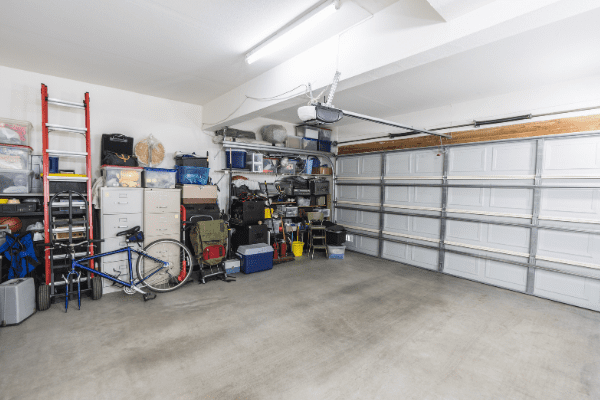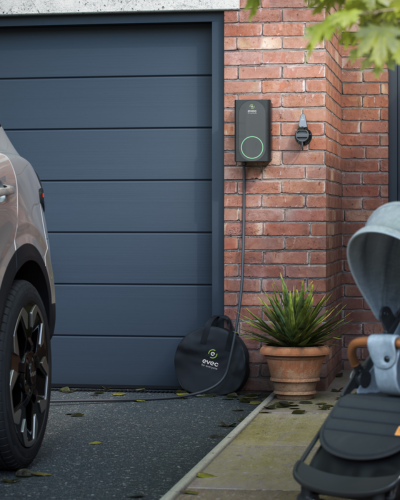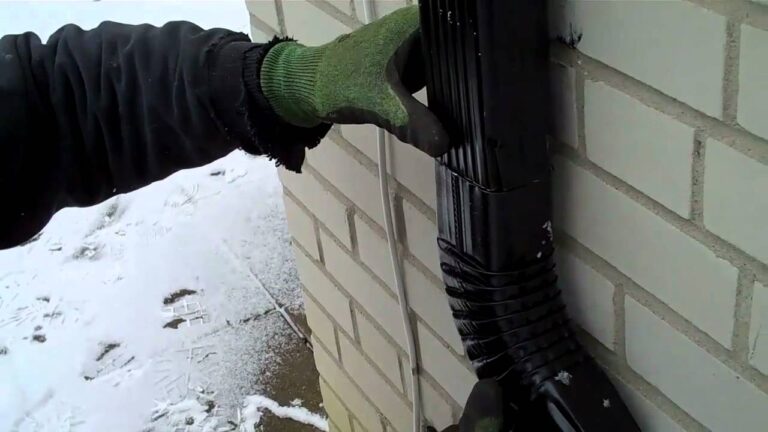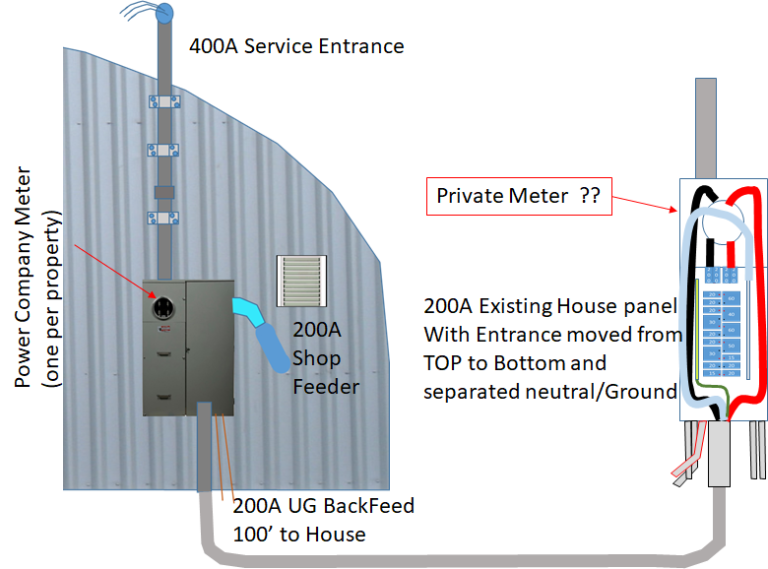Can I Install Separate Electric Meter in My Garage? Essential Guide
Yes, you can install a separate electric meter in your garage. It is often done for monitoring energy use or setting up a separate living space.
Setting up a separate electric meter in your garage can be quite useful. It allows you to track energy consumption accurately or create a distinct billing account for a tenant or workshop. Understanding the process and requirements is essential before you start.
This guide will help you understand the steps, benefits, and considerations involved in installing a separate electric meter in your garage. Whether you are thinking of renting out the space or just want better control over your energy use, this information is vital. Read on to learn more.
Assessing Need
Installing a separate electric meter in your garage can help track energy usage. Check local regulations and consult an electrician for advice.
Determining if you need a separate electric meter in your garage is crucial. This decision depends on how you use the space and the potential costs involved. Evaluating your needs helps you make an informed choice.Usage Scenarios
Think about how you use your garage. Do you use it as a workshop? A home office? Maybe a guest room? Different uses have different power needs. Heavy machinery or HVAC systems need more power. A separate meter can help manage this. Consider future plans too. Are you planning to add more equipment? Knowing your future use helps you decide now. This avoids costly changes later.Cost Considerations
Installing a separate electric meter involves costs. You need to factor in the installation fee. Electricians charge for labor and materials. This can vary based on your location and the complexity of the job. There are also ongoing costs. A separate meter means a separate bill. Your monthly expenses might increase. Weigh the benefits against these costs. Sometimes, a separate meter can save money. If your garage has high energy use, it might qualify for a different rate. This can lower your overall energy bill. It’s worth checking with your utility company. In summary, assess your current and future needs. Understand the costs involved. This helps you decide if a separate electric meter is the right choice for your garage. “`
Credit: www.bpmelectric.com
Legal Requirements
Installing a separate electric meter in your garage may seem simple. But there are important legal requirements to consider. Each region has its own rules. Understanding these rules helps prevent future issues.
Local Regulations
Local regulations can vary greatly. Some areas have strict rules about installing separate electric meters. These rules ensure safety and proper use. Always check your local building codes. They provide detailed information about what’s allowed.
Permits And Approvals
Getting a permit is often necessary. Permits ensure that installations meet safety standards. Without a permit, you might face fines. Some regions also require specific approvals. These can come from utility companies or local government.
Permits and approvals might seem like a hassle. But they ensure that the work is done correctly. They protect you and your property. Always consult with local authorities. They can guide you through the process.
Types Of Electric Meters
Installing a separate electric meter in your garage can help you monitor energy consumption. It also helps in maintaining accurate billing for your usage. Understanding the types of electric meters is crucial. This knowledge will help you make an informed decision.
Analog Meters
Analog meters are traditional. They have a rotating disc and dials. Each dial represents a different unit of measurement. To read an analog meter, you must note the position of each dial. This type of meter is less common today. They are slowly being replaced by digital meters.
Digital Meters
Digital meters are modern. They show readings on a digital display. They are easy to read. You can see your usage in kilowatt-hours directly. Digital meters are more accurate. They can also provide more data about your energy consumption. Some digital meters can even send readings automatically to your utility company.

Credit: diy.stackexchange.com
Choosing The Right Meter
Installing a separate electric meter in your garage can be a smart move. It helps you track the electricity usage and manage your bills better. But how do you choose the right meter? Let’s dive into some important considerations to make the best choice.
Factors To Consider
When selecting an electric meter, there are a few key factors to keep in mind:
- Cost: Different meters come at different prices. Make sure you pick one that fits your budget.
- Accuracy: You need a meter that provides precise readings. This ensures you only pay for what you use.
- Ease of Installation: Some meters are easier to install than others. If you’re doing it yourself, you might want a simpler option.
- Durability: Choose a meter that can withstand the conditions in your garage, especially if it gets hot or cold.
Compatibility With Existing System
Another crucial aspect is the compatibility of the new meter with your existing electrical system. Here are a few points to ponder:
- Voltage: Ensure the meter matches the voltage of your current system. This is usually indicated on the meter.
- Phase: Check if your system is single-phase or three-phase and choose a meter accordingly.
- Regulations: Look into local regulations and make sure the meter meets all the legal requirements.
Choosing the right meter might seem daunting, but taking these factors into account can make the process smoother. Ever tried installing one yourself? It can be quite an adventure, and a learning experience too!
So, when you’re ready to install that new meter, remember these points and you’ll be on the right track. Happy metering!
Installation Process
So, you’re considering installing a separate electric meter in your garage? Whether you’re trying to track energy usage or preparing for a separate living space, understanding the installation process is crucial. Let’s break it down into manageable steps, covering both professional and DIY installation options.
Professional Installation
When it comes to professional installation, you can expect a seamless and hassle-free experience. Hiring a licensed electrician ensures everything is up to code and safely installed. Here’s a quick rundown of what to expect:
- Initial Consultation: The electrician will assess your garage and discuss your specific needs. This might include the desired location for the meter and any additional wiring required.
- Permits and Approvals: Your electrician will handle all the necessary permits and liaise with local authorities to ensure compliance with regulations.
- Installation: On the scheduled day, the electrician will install the meter, often completing the job within a few hours.
- Inspection: After installation, an inspector may visit to ensure everything is done correctly and safely.
While this option might be a bit more expensive, it saves you time, stress, and potential headaches down the line. Plus, you can be confident that the job is done right.
Diy Installation Steps
Feeling adventurous and want to tackle the installation yourself? It’s definitely possible, but you’ll need to be cautious and thorough. Here’s a step-by-step guide to help you get started:
- Gather Materials: You’ll need the electric meter, appropriate wiring, conduit, a circuit breaker, and necessary tools like a drill and screwdriver.
- Turn Off Power: Safety first! Ensure all power to the garage is turned off at the main breaker to avoid any accidents.
- Install the Meter Box: Mount the meter box on an exterior wall of your garage. Make sure it’s securely fastened and level.
- Run Wiring: Connect the wiring from your main electrical panel to the meter box. Use conduit to protect the wires and ensure they are safely routed.
- Connect the Meter: Install the electric meter into the meter box, ensuring all connections are tight and secure.
- Install the Circuit Breaker: Insert the new circuit breaker into your main panel and connect it to the meter wiring.
- Test the System: Once everything is connected, turn the power back on and test the meter to ensure it’s working correctly.
Remember, if at any point you feel unsure or uncomfortable, don’t hesitate to call in a professional. Electrical work can be dangerous if not done correctly.
Whether you choose to hire a professional or go the DIY route, installing a separate electric meter in your garage can offer you greater control over your energy consumption and potentially save you money in the long run. Happy installing!
Cost Breakdown
So, you’re thinking about installing a separate electric meter in your garage? Smart move! Whether you’re setting up a workshop, charging an electric vehicle, or just want a clear division between your home and garage electricity usage, understanding the cost breakdown is crucial. Let’s dive into the nitty-gritty details.
Meter Costs
The first component of your cost breakdown is the meter itself. Electric meters come in various types and prices. Here’s a simple table to help you understand the options:
| Type of Meter | Average Cost |
|---|---|
| Basic Analog Meter | $50 – $100 |
| Digital Meter | $100 – $200 |
| Smart Meter | $200 – $300 |
Choosing the right meter depends on your needs. A basic analog meter is the most cost-effective, but a smart meter offers advanced features like remote monitoring. Think about what suits your situation best.
Installation Costs
Next up, the installation costs. Installing an electric meter isn’t a DIY project for most people. You’ll need a licensed electrician. Here’s a general idea of what you might expect:
- Electrician Fees: $50 – $100 per hour. Most installations take 2-4 hours.
- Permits and Inspections: $100 – $200. Local regulations may require permits and inspections.
On average, the total installation cost ranges from $200 to $600. Don’t forget to get multiple quotes from electricians to ensure you’re getting a fair price.
Now, let’s put it all together:
- Cost of Meter: $50 – $300
- Installation Costs: $200 – $600
So, is it worth it? If you need precise energy tracking or have high energy usage in your garage, it can be a wise investment. Plus, you might save money in the long run by avoiding disputes over energy usage. Got any questions? Feel free to ask in the comments below!
Maintenance And Monitoring
Installing a separate electric meter in your garage helps track energy usage more accurately. This can simplify billing and monitor consumption.
Maintaining and monitoring an electric meter in your garage is essential. It ensures the meter functions properly. Regular checks and reading the meter are key tasks. These tasks help avoid potential issues and ensure accurate readings.Regular Checks
Perform regular checks on your electric meter. Look for any physical damage. Ensure there are no loose connections. This helps in avoiding electrical hazards. Check for any signs of wear and tear. Early detection prevents bigger problems.Reading The Meter
Reading the meter is crucial for monitoring electricity usage. Take readings at regular intervals. Record the readings accurately. This helps in tracking energy consumption. It also helps in detecting any unusual patterns. Accurate readings ensure you are billed correctly. “`
Credit: wepoweryourcar.com
Troubleshooting
Installing a separate electric meter in your garage can be a smart move. It helps manage energy use and costs. But it’s not always a smooth process. Troubleshooting common issues is part of the journey.
Common Issues
One common issue is wiring problems. Incorrect wiring can cause the meter to malfunction. Double-check all connections. Ensure wires are secure and in the right place.
Another problem is a faulty meter. Sometimes, the meter itself might be defective. If the display is blank or readings are erratic, you might need a replacement.
Incorrect meter settings can also cause trouble. Make sure the meter is set up correctly. Refer to the user manual for proper settings.
When To Call A Professional
Call a professional if you face persistent issues. Complex wiring problems often need expert handling. Don’t risk your safety by attempting major fixes alone.
Electrical codes and regulations can be tricky. Professionals are well-versed in local codes. They can ensure your installation meets all legal requirements.
In case of any doubts, always seek expert advice. Better safe than sorry!
Frequently Asked Questions
How Much Does It Cost To Add An Electric Meter To A Garage?
Adding an electric meter to a garage typically costs between $500 and $1,500. Prices vary based on location and complexity. Contact a licensed electrician for an accurate estimate.
Can I Have Two Electric Meters On My Property?
Yes, you can have two electric meters on your property. Contact your utility company for installation details and requirements.
How To Add Electric Service To Garage?
To add electric service to a garage, install a subpanel, run conduit, and wire outlets. Hire a licensed electrician.
Can I Add A Second Electrical Service To My House?
Yes, you can add a second electrical service to your house. Contact a licensed electrician for installation and permits.
Conclusion
Installing a separate electric meter in your garage offers many benefits. It provides accurate billing and helps manage energy usage. Before starting, check local regulations and get the necessary permits. Hiring a licensed electrician ensures a safe and proper installation.
With a separate meter, you gain better control over your garage’s electricity needs. Make a plan, follow guidelines, and enjoy efficient energy management.

My name is Maria, A professional merge game player with years of experience mastering games like Merge Dragons, Merge Gardens, Merge Mansion, and more. My passion for uncovering the best strategies, solving tricky puzzles, and discovering hidden secrets led her to create MergeGameplay.com.






